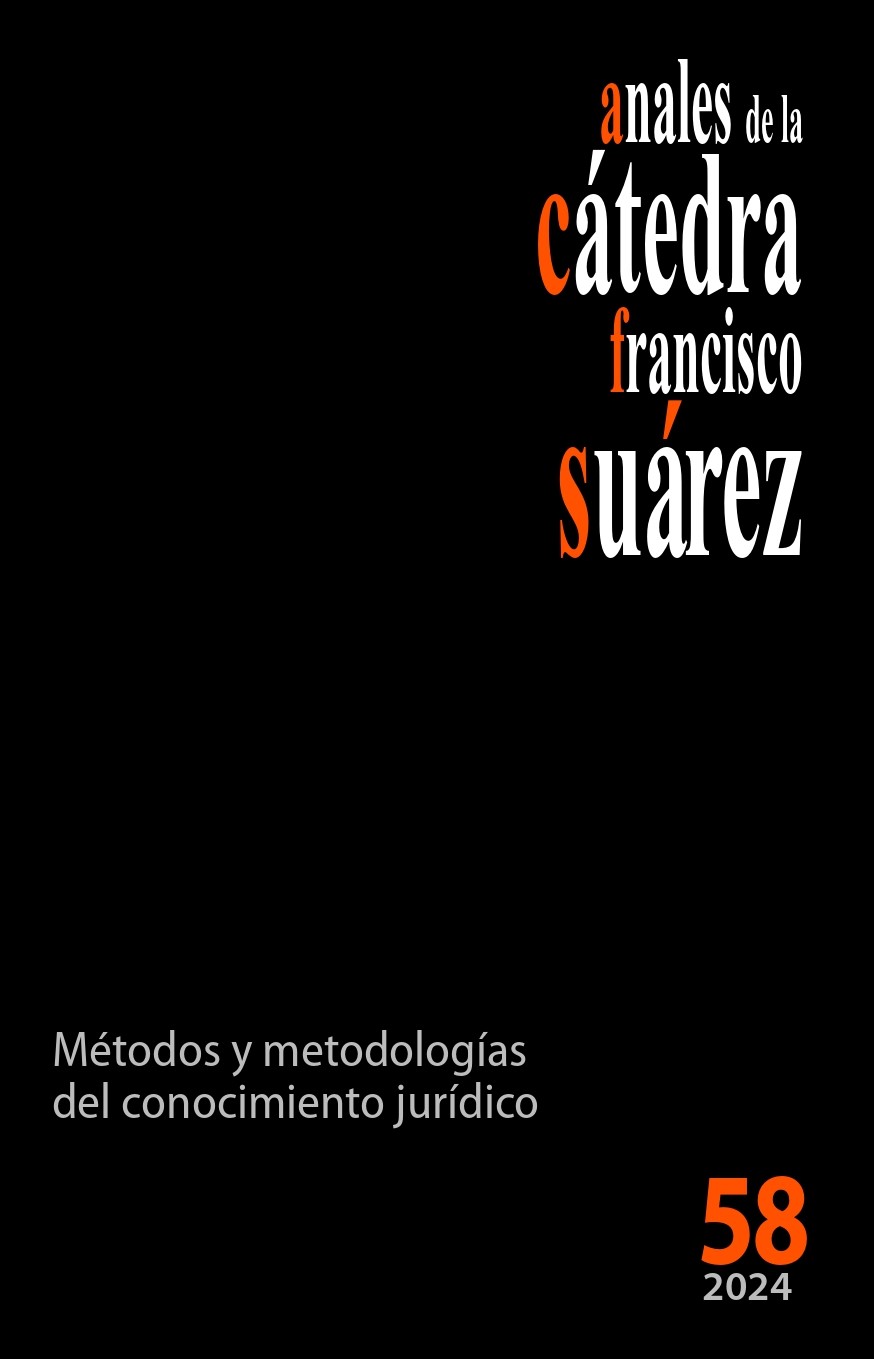Individualism, inequality and democracy.
Critiques of the public-private distinction of the deliberative model
DOI:
https://doi.org/10.30827/acfs.v58i.28578Keywords:
Public, Private, Democracy, Equality, IndividualismAbstract
In this paper I analyze the distinction between public and private matters in the deliberative democratic model. First, I make explicit the different contexts in which the public-private distinction is used in deliberative democratic theory. I argue that, in each of these contexts, the terms public and private take on different meanings and that many of them are contestable. I then identify and develop what I consider to be problematic issues in the distinction between public and private matters as a prerequisite for debate from three different perspectives. First, because I see it as having significant costs in terms of equality in debate. Second, because it undermines the epistemic value of democratic deliberation that the model claims to honor. Finally, because it engages with a conception of the individualistic subject with strong normative implications.
Downloads
References
Alvarado, M. (2016). Epistemologías feministas latinoamericanas: un cruce en el camino junto-a-otras, pero no-junta a-todas, Religación. Revista de Ciencias Sociales y Humanidades, 1(3) 9-32. https://revista.religacion.com/index.php/religacion/article/view/49
Butler, J. (2019). Cuerpos aliados y lucha política. Hacia una teoría performativa de la asamblea. Buenos Aires: Paidós.
Butler, J. (2020). La fuerza de la no violencia. Buenos Aires: Paidós.
Castrelo, V. (2018). La esfera pública habermasiana. Inmediaciones de la comunicación, 13(1), 71-87. https://revistas.ort.edu.uy/inmediaciones-de-la-comunicacion/article/view/2826
Cohen, J. (2007 [1989]). Deliberación y legitimidad democrática. Cuaderno Gris, 9, 127-145.
Cohen, J. E. (2013). What privacy is for. Harvard Law Review, 126, 1904-1933. https://harvardlawreview.org/print/vol-126/what-privacy-is-for/
Dussel, E. (2020) El primer debate filosófico de la modernidad. Sao pablo: CLACSO. http://biblioteca.clacso.edu.ar/clacso/se/20201013100555/El-primer-debate.pdf
Dussel, E. (2000) Europa, modernidad y eurocentrismo. Sao Pablo: CLACSO. http://bibliotecavirtual.clacso.org.ar/clacso/sur-sur/20100708040738/4_dussel.pdf.
Fraser, N. (1993). Repensar el ámbito público: una contribución a la democracia realmente existente. Debate feminista, 23-57. https://debatefeminista.cieg.unam.mx/df_ojs/index.php/debate_feminista/article/view/1640/1469
Gargallo, F. (2012). ¿Qué hay entre las movilizaciones indígenas y las feministas? En Feminismos desde Abya Yala. Ideas y proposiciones de las mujeres de 607 pueblos en nuestra América. Ciudad de México: Corte y Confección.
Gargarella, R. (2009). La república deliberativa de José Luis Martí. Diritto e Questioni pubbliche, 9, 257-266. chrome-extension://efaidnbmnnnibpcajpcglclefindmkaj/http://www.dirittoequestionipubbliche.org/page/2009_n9/03_mono-03_R_Gargarella.pdf
Gargarella, R. (2021). El derecho como una conversación entre iguales. Qué hacer para que las democracias constitucionales se abran –por fin– al diálogo ciudadano. Argentina: Siglo XXI editores.
Goode, L. (2005). Jürgen Habermas. Democracy and the Public Sphere. London: Pluto Press.
Habermas, J. (1991[1961]) The Structural Transformation of the Public Sphere. An Inquiry into a Category of a Bourgeois Society. Cambridge, Massachusetts: The MIT Press.
Habermas, J. (1974). The Public Sphere: An Encyclopedia Article. New German Critique, 3, 49-65.
Landemore, H. (2020). Open Democracy. Reinventing Popular Rule for the Twenty-First Century. USA: Princeton University Press.
Laval, C. y Dardot, P. (2015). Común. Ensayo sobre la revolución en el siglo XXI. Barcelona: Gedisa.
Martí, J. L. (2006). La República Deliberativa. Barcelona: Marcial Pons.
Mill, J. S. (2003 [1859]). On Liberty. Londres: Dover.
Nash, K. (ed.) (2014) Transnationalization of de Public Sphere. Malden, Estados Unidos: The Polity Press.
Nino, C. S. (1997) La constitución de la democracia deliberativa. Barcelona: Gedisa.
Pateman, C. (1996). Críticas feministas a la dicotomía público-privado. En Castells, C. Perspectivas feministas en teoría política (pp. 2-23). Paidós: Barcelona.
Pitch. T. (2010). Sexo y género de y en el derecho: el feminismo jurídico. Anales de la Cátedra Francisco Suárez, 44, 435-459. https://revistaseug.ugr.es/index.php/acfs/article/view/515
Quijano, A. (2000) Colonialidad del poder y clasificación social, Journal of world-systems research, VI(2), 342-386. chrome-extension://efaidnbmnnnibpcajpcglclefindmkaj/http://biblioteca.clacso.edu.ar/clacso/se/20140506032333/eje1-7.pdf
Roig, A (1993). Historia de las ideas, teoría del discurso y pensamiento latinoamericano (selección de textos). Bogotá: UST.
Waldron, J. (1999). Law and Disagreement. USA: Oxford University Press.
Waldron, J. (1991). Homelessness and the Issue of Freedom. UCLA Law Review, 39, 295-324
Young, I. M. (1997). La democracia ‘y el otro’: más allá de la democracia deliberativa. En Young, I.M. Intersecting voices (pp. 23-42). Estados Unidos: Princeton University Press.
Young, I.M. (2000). La justicia y la política de la diferencia. Valencia: Ediciones Cátedra, Universidad de Valencia, Instituto de la Mujer.
Downloads
Published
How to Cite
Issue
Section
License
Copyright (c) 2023 Anales de la Cátedra Francisco Suárez

This work is licensed under a Creative Commons Attribution-NonCommercial 4.0 International License.
Authors are the owners of the rights to their works. ACFS requests that publication notice on ACFS is disclosed if they appear later in another place.

















